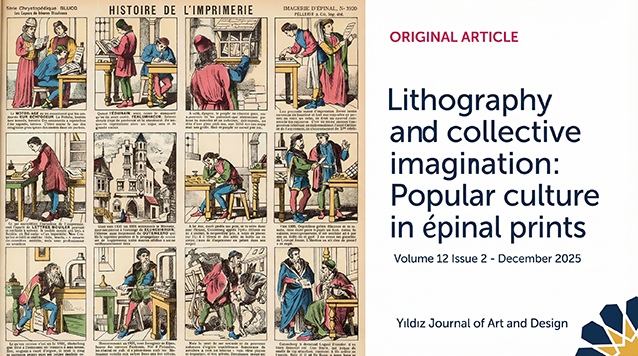Abstract
This work outlines Brazilian local music and Heitor Villa-Lobos, the leading and best-known composer of twentieth-century Brazilian music, explains the life of composer, the general characteristics of his compositions and the original musical language. The song Chôro no.2, which the composer wrote for the flute and clarinet in its original form, was prepared in detail.This study consists of a qualitative research method which includes technical, stylistic and descriptive explanations based on the written, visual and auditory literature review and the professional experience of the author in order to determine the stylistic features of flute and clarinet music. When a piece of music is considered to be performed, the expression on the musical note can be found. Music terms and explanatory expressions used by the composer explain to the performer how to perform his work. However, it may not be sufficient to apply only those explanatory terms and marks for a good comment. For this reason, it is very important for the interpreter to be aware of the work he / she will speak, to find the music ideas that are not written on the note in order to make sense of the music and to interpret the work as necessary. In addition to having information about the work to be performed for a quality performer, it is of great importance to find and reveal music ideas that are not written on the note. In order to show this awareness, the source of the music ideas that composed the music work of Heitor Villa-Lobos called Chôro no.2 was researched and the details which should be known for the clarinet and flute performer who wanted to interpret this work are explained with examples. It is thought that the vocalization of the work in the light of this information will be reflected on the comment positively. The idea that the music ideas and details will be revealed and the reason for listening and interpreting with this knowledge is revealed.
Bu çalışma genel hatlarıyla Brezilya bölge müziği, yirminci yüzyıl Brezilya müziğinin önde gelen ve en tanınan bestecisi Heitor Villa-Lobos’un hayatı, bestecilik anlayışı, bestelerinin genel özellikleri ve özgün müzik dilini açıklamaktadır. Bestecinin orijinal şekliyle flüt ve klarnet için yazdığı Chôro no.2 adlı eseri ayrıntılı bir şekilde incelenerek akademisyenlere, icracılara ve dinleyicilere yönelik, seslendirilme ve yorumlama açısından yol gösterici bir kılavuz niteliğinde hazırlanmıştır. Bu çalışma flüt ve klarnet müziğinin stilistik özelliklerinin tespitine yönelik olarak yazılı, görsel ve işitsel literatür taramasına ve yazarın profesyonel deneyimine dayalı teknik ve stilistik betimsel açıklamalar içeren nitel bir araştırma yönteminden oluşur. Seslendirilmek üzere herhangi bir müzik eseri ele alındığında nota yazısı üzerinde icracıyı yönlendiren ifadelere rastlanır. Bestecinin kullandığı müzik terimleri ve açıklayıcı ifadeler icracıya eserinin nasıl seslendirilmesi gerektiğini açıklar. Ancak iyi bir yorum için sadece bu açıklayıcı terim ve işaretleri uygulamak yeterli olmayabilir. Bu nedenle yorumcunun, seslendireceği eser hakkında bilgi sahibi olması gerekliliği, müziği anlamlandırabilmek için notada yazılı olmayan müzik fikirlerinin bulup ortaya çıkarılması şeklindeki çalışmalar eserin gerektiği gibi yorumlanmasında çok önemlidir. Kaliteli bir icra için seslendirilecek eser hakkında bilgi sahibi olmanın yanında notada yazılı olmayan müzik fikirlerinin bulunup ortaya çıkarılması büyük önem taşır. Bu farkındalığı göstermek adına Heitor Villa-Lobos’un Chôro no.2 adlı müzik eserini oluşturan müzik fikirlerinin kaynağı araştırılmış, bu eseri yorumlamak isteyen klarnet ve flüt icracısı için bilinmesi gereken ayrıntılar örneklerle açıklanmıştır. Eserin bu bilgiler ışığında seslendirilmesinin yoruma olumlu olarak yansıyacağı düşünülmektedir. Seslendirilecek eserin altında yatan müzik fikirlerinin ve ayrıntıların ortaya çıkarılması ve bu bilgiyle bilerek dinlemeye ve yorumlamaya sebep olacağı fikri göz önüne serilmektedir.















